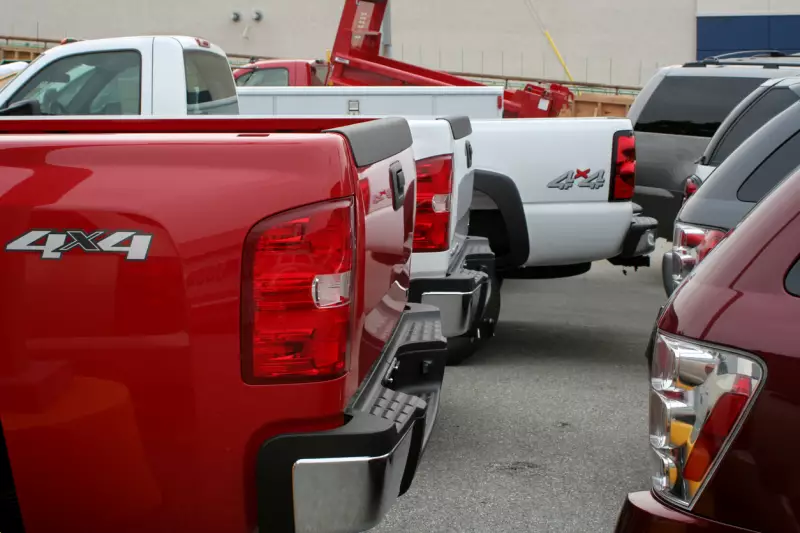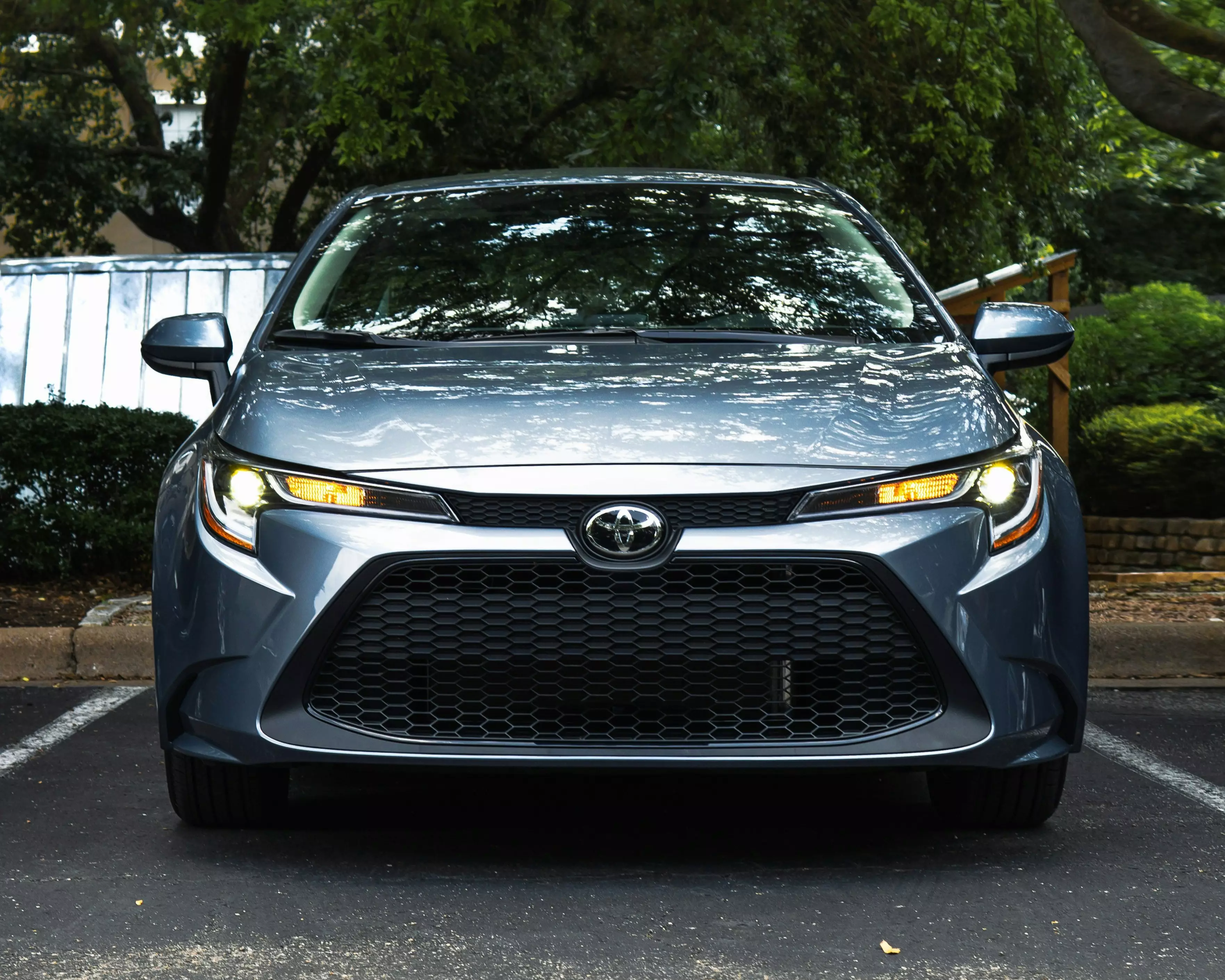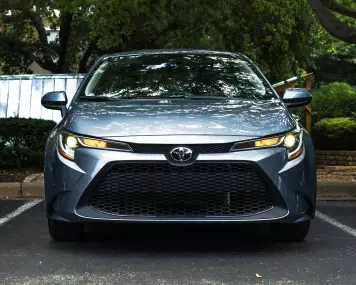If you plan to purchase a truck, you may wonder which one to buy. Your choice will heavily depend on the truck’s drivetrain configuration. The drivetrain affects your truck’s performance, ability to handle rugged terrain and conditions, and fuel efficiency.
Most trucks are configured as either a 4x4 or a 4x2 drivetrain. When you understand the difference between the two, you can better decide which is for you.
In this guide, we will explore what a 4x2 truck is, how it compares with a 4x4, and when each one is most suitable.
What is a 4x2 Truck?
A 4x2 drivetrain or truck is a vehicle with four wheels, with engine power delivered to only two of them. Usually, power is supplied to the two rear wheels.
Most 4x2 models are used on paved roads where minimal traction is necessary. The two front wheels are mainly used for steering, while the two rear wheels push the vehicle forward.
Difference Between 4x2 and 4x4
A "4x4" represents a vehicle designed to conquer challenging terrain easily. These vehicles feature a specialized drivetrain that powers all four wheels simultaneously, which sets them apart from 4x2 models.
Here are the key areas that you should look into:
Traction and Handling
4x4 trucks are built to tackle the toughest landscapes. Their ability to distribute power across all wheels gives them a significant advantage when navigating through mud, snow, or rocky terrain. This ability makes them the go-to for outdoor enthusiasts and professionals working in remote areas.
On the flip side, a 4x2 truck, with its rear-wheel drive setup, is optimized for smooth pavement.
Fuel Efficiency
The advanced capabilities of 4x4 trucks come at a cost – increased fuel consumption. The additional weight of the 4x4 system and the energy required to power all wheels result in lower fuel efficiency than 4x2 models. For drivers prioritizing economy over off-road performance, a 4x2 drivetrain often proves more cost-effective in the long run.
Cost and Maintenance
4x2 models generally have the edge regarding purchase price and maintenance. Their simpler drivetrain design translates to a lower sticker price and reduced maintenance costs over time.
4x4 trucks have more complex systems, including transfer cases and additional differentials. This complexity makes the 4x4 more expensive and may require more frequent servicing to keep all components in top condition.
When to Choose a 4x2 Truck Over 4x4

While 4x4 trucks often grab headlines with their rugged off-road capabilities, the humble 4x2 remains a popular and practical choice for many drivers and businesses.
Let's explore the following scenarios:
Urban Warriors
A 4x2 drivetrain offers the perfect balance of utility and efficiency for city dwellers and suburban commuters. These vehicles excel on paved roads, providing smooth handling and ample power for daily driving tasks.
Without the added weight of a 4x4 system, a 4x2 often delivers superior fuel economy. This economy makes these trucks ideal for those who clock miles on highways and city streets.
Light-Duty Haulers
Many professionals and DIY enthusiasts find that a 4x2 truck meets all their hauling needs. This truck offers towing and payload capacities for most light—to medium-duty tasks. The lower ride height of many of these trucks also makes loading and unloading cargo easier than their lifted 4x4 counterparts.
Budget-Conscious Buyers
A 4x2 truck is a good, cost-effective option for those watching their wallets. The initial purchase price is typically lower than that of equivalent 4x4 models, and this cost advantage extends throughout the vehicle's lifetime. With fewer complex components, this truck generally incurs lower maintenance costs and can be more affordable to insure.
Fleet Management Solutions
Businesses with vehicle fleets often find 4x2 models cost-effective. When multiplied across a fleet, the combination of lower acquisition costs, better fuel efficiency, and reduced maintenance expenses can lead to significant savings, which can be monitored more efficiently through fleet management software.
For companies operating primarily in urban or suburban environments, the off-road capabilities of 4x4 trucks may be an unnecessary expense.
Fair-Weather Regions
In areas with mild climates and minimal challenging terrain, the advanced capabilities of a 4x4 system may go largely unused. Drivers in these regions can enjoy the benefits of 4x2 truck ownership without the cost and complexity of four-wheel drive.
Customization Potential
The simpler 4x2 drivetrain can make them an excellent platform for customization. You can create a lowered street truck or a specialized work vehicle.
4x2 models also offer efficiency, affordability, and practicality for many drivers. Consider your driving habits, work requirements, and budget constraints. You may find that this model perfectly suits your needs without the added expense of four-wheel drive capability.
What Are the Drawbacks of 4x2 Trucks?
While a 4x2 offers many benefits for urban and highway driving, they have limitations you must consider. Here are some examples:
Off-Road Limitations

A 4x2 drivetrain is not designed for rugged off-road adventures. Their two-wheel drive configuration struggles in environments that demand enhanced traction, such as:
- Muddy trails where wheels can easily lose grip
- Sandy beaches or desert terrain that require distributed power
- Rocky paths that need careful wheel placement and consistent torque
Without power to all four wheels, 4x2 models are more prone to getting stuck or failing to navigate these challenging terrains, potentially leaving drivers stranded in remote areas.
Adverse Weather Conditions
When Mother Nature unleashes her fury, a 4x2 truck can face significant challenges:
- In snowy conditions, the lack of front-wheel power can make steering and forward progress difficult
- Icy roads become treacherous, as the rear-wheel drive setup is more prone to fishtailing
- Heavy rainstorms can lead to hydroplaning, with less ability to regain traction compared to 4x4 vehicles
These weather-related limitations can compromise safety during inclement conditions and potentially restrict the truck's usability in certain climates or seasons.
Perceived Value
In the automotive market, perception often drives value, and this principle applies to 4x2 models. Potential buyers may view this model as having limited capabilities, even if those capabilities align with their needs. Also, in regions where off-road driving or adverse weather is common, this truck may depreciate faster due to lower demand.
This perception can impact long-term ownership costs. They may influence the decision-making process for buyers considering future resale or trade-in options.
When choosing between a 4x2 and a 4x4 truck, align your selection with your daily driving needs and long-term goals. Urban dwellers and highway commuters often find that a 4x2 truck offers the ideal balance of performance and economy while keeping fuel costs and maintenance expenses in check.
However, for those who frequently venture off the beaten path or live in areas prone to severe weather, a 4x4 truck's enhanced traction and stability can be extremely valuable.




















